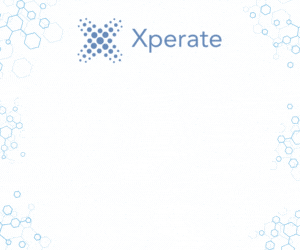sa.global: Time for transformation
In late 2020, in the middle of a global pandemic, sa.global unveiled its next-generation technologies platform evergreen and empower (empower will formally launch later this month). The former is so-called because it’s regularly updated by way of the Microsoft Azure cloud so as to stay continuously relevant as the demands on a law firm’s strategy change. And empower because it offers a dramatically updated user experience – unified, adaptable, intelligent and modern.
The two are written on top of Microsoft Dynamics 365 and the Microsoft business platform. CEO Stephen James says that you can think of Dynamics 365 as a set of connected modular SaaS applications and services designed to both transform and enable your core client, employee, and business activities. Not only do they combine all the core functionality that a modern legal practice needs to run its business such as practice management, client matter intake, BI and analytics, they also integrate your data, business logic and processes. The combination of Microsoft technology and sa.global’s own IP means that “you can think of evergreen as the back-end operations and finance tool incorporating practice management, billing and so on, while empower delivers the front-end user experience,” says James.
There has perhaps never been a period during which law firms have seen as much management and process change in as short a period as 2020. However, James cautions that they now take a well-earned break from the pressure to transform at their peril.
Indeed, he suggests legal could do worse than begin 2021 by looking carefully at any similarities or parallels with a sector where financial positions have been hit much harder in the past 12 months, such as retail. Traditional retail companies clearly couldn’t have prevented the damage to society wrought by Covid-19. But before the pandemic many established brands were long being challenged by new models that prioritized customer experience and convenience, and used technology as the enabler of changing that game.
“The more traditional a law firm is, the more vulnerable it will be to the advances of the more tech-savvy and agile competitors, which are better equipped to transform themselves to become more competitive still,” says James. “Technology is developing at a rapid pace and law firms need to jump aboard or they’ll get left behind.
“There also needs to be significantly sharper focus on the experience of both the client and the staff.
“Lawyers are incredibly good at the specific services they provide of course – and the direct value of the services they typically deliver is really very high. But the standard of what surrounds or underpins it – client experience, or finance and operations, for example – can fail to compare well with the other professional services businesses we work with.” And James’s team ought to be well-placed to make that comparison, with a long history of supplying solutions to accountancy firms, management consulting, software and marketing businesses, as well as further afield in the realm of manufacturing and supply chain.
To efficiency, and beyond
It isn’t that many law firms haven’t adapted to the realities of remote working fairly well over the course of the pandemic, he says; or even that they won’t invest in new technology to improve business performance regardless. It’s about how much they’re prepared to change – given that, unlike in retail, the “final, most complex 20% of legal work has long been a barrier to entry for others,” says James.
“What we see from our competitors in the legal software landscape is a lot of focus on efficiency – doing something faster or at lower cost. That has value certainly. But the firm that focuses solely on entering timesheets a bit faster than its competitor, or on billing more quickly, will still be vulnerable if a competitor leverages technology to change the effectiveness of its overall delivery and win’s the former’s clients.”
The route to greater effectiveness lies in making bold decisions and having an overall strategic framework and end goal in mind, continues James – and businesses serious about transformation today need to make them in the cloud. Cloud solutions can make the difference between having separate, siloed business functions and creating automated, integrated, and intelligent solutions that seamlessly connect to deliver real business transformation.
“The firms we’ve seen making the most seamless transitions to the remote-working environment did so with cloud – because the solution can continuously adapt to the needs of the business. You can leverage a system to do more – in terms of insight or collaboration, for example – precisely because it’s on the cloud.
“The fundamental cloud philosophy is to provide rapid time-to-value and incremental improvements. There are refreshed releases of evergreen and empower every quarter and major releases twice a year in line with the underlying Microsoft platform, so we can continuously improve aspects of how law firms are operating. And the firms themselves are actively steering the direction of the product by giving us continuous feedback and insight into what they want to achieve.”
He says that too many talk of cloud as though it’s synonymous with a system being ‘hosted’ – simply shifted off the premises to a server elsewhere.
In conversations James is having with law firms, he says they are increasingly now drawing a distinction of an offer being “true cloud”.
“There are distinct tests of that,” he explains. “Is everybody on the system using the same source code? Can you scale up the processing power during the especially busy billing period, and then down again when people are largely just entering the data? And can you leverage the broader toolset of Azure, such as cognitive analytics, quickly and easily?
“True cloud offers both a trusted platform and a broad ecosystem of services and tools. And because it’s based on a single technology platform it means that you have ‘one version of the truth’ across all your tools and applications and an automatic update of data and transactions”
“Ultimately the firm is empowered to make more decisions about its long-term strategic development on its own terms, rather than relying on an application provider to incorporate something into the offering.”
Maximizing the Microsoft advantage
In the year that sa.global turned 30 and introduced the market to evergreen and empower, the business was also recognized as one of Microsoft’s ‘Inner Circle’ partners for the sixth year. This group represents the top 1% of Microsoft Dynamics partners worldwide, and the chosen partners join regular summits with senior leaders at Microsoft – currently virtually, of course. James’s business was also awarded this status for its commitment to “innovation around the Microsoft cloud”.
“But the rate at which Microsoft is continually developing its platform is astonishing,” he says. “With our connected platform we are taking full advantage, and the applications within evergreen and empower are adaptable to your general business as well as your specific needs. Our goal is to meet you where you are. We’ve designed each application to work great on its own, so that you can decide which to start with, and at the same time they are designed to work even better together. This adaptability also extends to how your users want to work. We rearchitected the solution from the ground up on design principles that were based on a careful evaluation of the various personas in a typical law firm and the ideal environment for the tasks that they need to perform. Our empower suite provides a rich interactive user experience without the need to access the Dynamics 365 applications directly while evergreen is the processing and transactional engine for core finance and operations.
“For interacting with day-to-day tasks, or our business intelligence and analytics, we chose to deploy those through our empower hub in the browser, or Microsoft Teams where they can have a fully immersive and interactive experience. But for time entry and approvals you have the additional option to deploy via rich and powerful mobile apps so that your fee earners can interact with them on the move, either connected or disconnected.”
“It’s the combined power of all of this that means we haven’t just built another practice management system for law firms. We can deploy evergreen and empower through Microsoft Teams, for example, which enriches a firm’s collaboration experience. Reporting is now entirely through Power BI, which we can also surface through Teams as part of empower, connecting seamlessly with evergreen to enhance the front-end user experience.”
And then there are the tools for data migration to offer the “one version of the truth” across all systems, which so many have long found so elusive.
Fit for an uncertain future?
If our future’s one of widespread ‘hybrid working’, and so highly dispersed teams, there will surely also be even more pressure on firms to ensure any technology change is reliably intuitive for the front-line lawyer or business development professional to pick up and use. They need a new system to power their personal productivity immediately – so it can’t afford to cause confusion.
James reflects on the very beginning of his continuous career in computing. He first had a summer job involving spreadsheet modelling, working alongside his father who was helping to establish the Laura Ashley business. “I got completely absorbed in it, lugging the computer home with me at night to work on Lotus 123 and other spreadsheets that predated Excel – and then I applied to a small advert in The Sunday Times to be a financial modeler working with these products, which were completely new at the time.”
Moving on from that summer of spreadsheets was James’s first job interview and also his last, he says. “As long as you have the mindset of being prepared to innovate continuously, it’s an amazing industry to keep working in.
“PCs were then just starting to come into the mainstream, and you were seeing a movement away from the IT department being the center of everything, instead allowing people to extract data and manipulate it for themselves – from centralization to democratization.
“These things come in waves. Technology grew more complex and centralized, and now the developments we see around PowerApps and zero-code is a phase of democratization happening once again.
“The emphasis now is on empowering people by having information they need right at the fingertips – as simple to activate, and with the potential to change a course of action, as turning on a tap.”
He founded sa.global in Belgium in 1990, and it has gone from a handful of employees to a 700 member-strong team with a presence in 25 countries (see timeline below)
And as many law firms scrambled to roll things out in March 2020, did the pandemic require any innovation to kick in within his business? “We’re quite fortunate to have been working virtually – often without an office – since the mid-1990s,” he says. “I first started working in India in 1997, and then established our first offshore development center in India in 1999, which was right at the beginning of that wave of business change. And of course, that flexibility helped us to attract a diversity of talent to grow the business into what we have today.
“We’ve had no disruption to how we work, but I will say I’ve been very surprised by our clients’ willingness to work on projects remotely. Not only have many been open to a go-live without having the consultants walking the floor, some even appear to prefer it!”
There has been some reengineering of the implementation toolset in areas such as automatic deployment, but he says firms should also benefit from that in terms of faster project delivery on a standard configuration in future.
“Changing platforms at law firms can often be painful of course – and with updates collaboratively designed, and reliably delivered via the cloud, we hope that the evergreen and empower platform will be the last they need to put in!”
With budget also saved from all the international flights traditionally taken to see projects through to fruition, sa.global expects significant growth as vaccine rollouts hopefully begin to impact the course of the pandemic later in 2021. “Some clients understandably deferred some decisions in the midst of the uncertainty. However, we’re forecasting a wave of transformation projects to hit the cloud software industry this year,” says James.
It has been 12 months where most bets have been off. But a business developing resilient and flexible cloud-based technology solutions certainly sounds reasonable as a “recipe for success” in the next iteration of our working world.
This article was taken from Briefing February 2020: Hybrid powers. Read the full magazine here.



